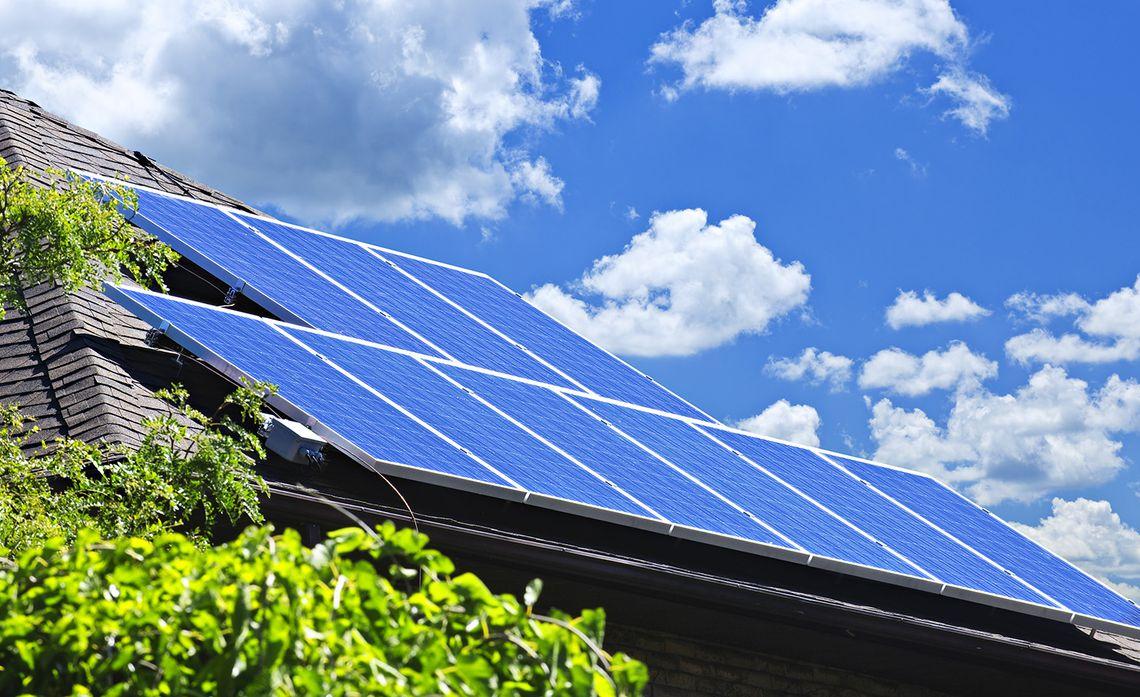What to Know Before Installing a Rooftop Solar System
The California Solar Consumer Protection Guide safeguards customers during the solar sales process.

Read it on Edison International's Stories
By: Julia Roether
Solar energy has a lot of benefits. It provides clean, renewable energy and can potentially save customers money.
If you are considering going solar, customers should ask specific questions to avoid common solar scams and figure out if going solar makes sense.
One of the most common myths is you will never pay an electric bill again after a solar system is installed. According to the new California Solar Consumer Protection Guide released by the California Public Utilities Commission, the truth is, after going solar, you will typically pay a small electricity bill every month and a larger electricity bill at the end of the 12-month cycle.
The commission urges customers to be aware of the most common myths to help avoid being scammed:
1. MYTH: You can get free solar energy at no cost to you.
TRUTH: Solar energy is rarely free. An honest company will be upfront about all the costs you will pay over time.
2. MYTH: You will never pay an electricity bill again after a solar system is installed.
TRUTH: After going solar, you will typically pay a small electricity bill every month and a larger electricity bill at the end of the 12-month cycle.
3. MYTH: Time is running out and you must quickly sign an electronic tablet to get solar.
TRUTH: An honest salesperson would never rush you to sign anything without giving you time to review what you are signing. California law requires a salesperson show you the contract terms before you sign.
The commission created this guide to provide objective information to homeowners interested in rooftop solar. In addition to pointing out the top solar scams and misleading sales tactics being used today, it also outlines a customer’s rights.
Customers should also keep in mind the following tips when determining if going solar makes sense:
- Before going solar, make your home energy efficient.
- There are many different types of purchase, financing and contracts options available. Make sure you understand all the pros and cons of each option and that you understand the terms of a contract before signing it.
- Be aware that bill savings estimates are not a guarantee. Before signing a contract, ask yourself if the estimates make sense and if there are any hidden fees.
- Make sure your home is a good candidate for rooftop solar. Your home should have clear access to the sun for most of the day and throughout the year. If your rooftop can’t be used, you might be able to, under the right conditions, place the panels on the ground. In Southern California, a south or southwest-facing roof will give you the most sun. You’ll need to determine if you have enough space on your roof for the solar panels to fit.
- There isn’t a one-size-fits-all solution. The size of the solar system you need depends on how much electricity you use and a number of other factors. A good place to start is to look at your electricity bills to see how much electricity you use each year and then talk with a number of solar contractors to go over your specific needs.
- Once you’ve made the decision to go solar, use a licensed solar contractor.
- Additional information on going solar is available on SCE’s website.
In many instances, installing a solar system makes good financial sense, and it helps the environment because it doesn’t release harmful greenhouse gas emissions when it generates energy. However, if you have already installed solar and think you have been a victim of solar fraud, report the incident to the Contractors State License Board at 800-321-CSLB (2752) or www.cslb.ca.gov/consumers

